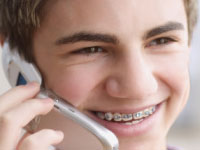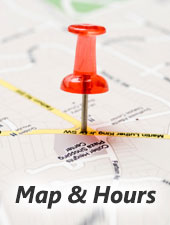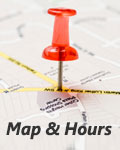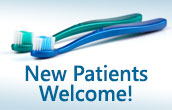Visiting Your Orthodontist Is The First Step In Getting Orthodontic Braces
Your orthodontist knows you probably have plenty of questions about getting braces. Here are a few that prospective patients often ask.
What Usually Happens During an Initial Orthodontic Exam?
In order to determine your specific needs, the orthodontist will completely evaluate your mouth. This will likely include:
- Impressions of your teeth, from which models are made (these are useful for the orthodontist, and will remind you exactly how your teeth looked before correction).
- Photographs of your teeth, face, and smile
- X-rays of your head and teeth
- Your medical health history and dental health history
Your orthodontist will then carefully evaluate your specific needs and provide you with a treatment plan for correction. Following the recommended plan is important for proper correction.
What Are Spacers?
Teeth normally fit tightly against one another. Your orthodontist will insert before placement of your braces to provide some space between teeth for attaching the bands. There are two types of spacers, small springs or plastic modules. In just a few days they gently move desired teeth slightly apart.
Spacers often cause some soreness, but this goes away in a few days. Rinse your mouth with warm salt water to relieve the irritation. Your normal chewing also helps to get your mouth feeling better.
What Do I Do If a Spacer Comes Out?
Call your orthodontist immediately for a replacement. That little spacer is making just enough room for a comfortable fit for your braces and plays an important role.
What Can I Eat When I have Orthodontic Braces?
You can eat just about anything, but there are some exceptions. Getting used to braces also usually means making a few adjustments in your eating habits. This is because some food might damage your orthodontic braces or cause problems for your teeth. Here's a list of items your orthodontist will suggest you avoid (or some ways they can still be enjoyed with caution):
- Apples (don't bite into a whole one! Cut it into wedges first.)
- Bubble gum (some orthodontists allow sugarless gum, but check with yours for approval)
- Candy (caramels, taffy, nut brittles, fruit-flavored chewy candies, gummi anything!)
- Carrots (avoid sticks, cut into thin curls)
- Corn on the cob (remove the kernels from the cob, then enjoy!)
- Corn chips/crisp tacos
- Hard foods (they're tough on orthodontic braces, causing bending and breaking)
- Ice (no crunching!)
- Lemon juice/lemons (pure lemon juice is very hard on your tooth enamel)
- Nuts
- Pizza crust/crusty breads (outer edges)
- Popcorn
- Pretzels (the large, hard varieties)
- Sticky foods (can bend wires and pull off brackets)
- Sugary foods (avoid these as much as possible; if you do eat them, brush your teeth within minutes or as soon as possible, or at least rinse your mouth with water)
By Brian J. Gray, DDS, MAGD, FICO
«« Back to Dental Information Center
Don't Forget to Floss!
Clean between teeth daily with floss or an interdental cleaner. Decay-causing bacteria can hid between teeth where toothbrush bristles can't reach. Flossing helps remove plaque and food particles from between teeth and under the gum line.
Visit Our Office Regularly!
Take good care of your smile. Remember to visit the dentist regularly for professional cleanings and oral exams.
Mouthwash Is Important, Too!
Brushing and flossing may not be enough. The ADA now recommends using an antimicrobial mouthwash to reduce plaque and prevent gingivitis.




